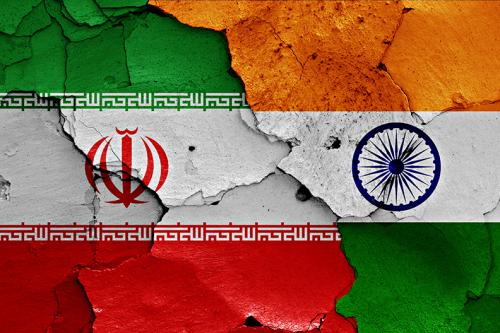Jacob G. Hornberger |
I just read a very insightful article about the history of the war on drugs, entitled “How America Convinced the World to Demonize Drugs” by J.S. Rafaeli. The central theme of the article is that while nations around the world have their own particular drug laws and the drug war, the overall originator and instigator of the global war on drugs is the U.S. government.
What particularly fascinated me about the article, however, was the way it showed how the war on drugs originally intersected with the war on immigrants. As I have noted in many of my articles in the past, late-1800s America was undoubtedly the most unusual society in history. Imagine No income taxation, IRS, Social Security, Medicare, Medicaid, public schooling, Pentagon, CIA, NSA, FBI, national-security state, economic regulations, minimum-wage laws, occupational licensure, welfare, and gun control. And no immigration controls and no drug laws!
It was during this period of time that progressives initiated their attacks on the idea of open immigration and the right to possess, distribute, and import drugs
From the inception of the country, people from around the world were free to enter the United States. There was a quick examination at Ellis Island to check if people had some communicable disease like tuberculosis. On the West Coast and on the U.S.-Mexico border, there was a complete free entry, not even a check for communicable diseases.
The U.S. Border Patrol wasn’t established until 1924. People were also free to bring whatever they wanted into the United States, including drugs. That included Americans who traveled to foreign countries. Possessing or distributing drugs was also entirely legal. Like I said, the most unusual society in history!
Read more: Drug war dust-up in New York governor’s race
In the late 1800s, the progressives began leveling their attacks on America’s unusual free-market system. They began introducing such statist ideas into the marketplace of ideas as income taxation, public schooling systems, government-provided health care and retirement pensions, minimum-wage laws, and other aspects of what became known as the welfare-state or paternalistic way of life, one where the government is charged with the task of taking care of people.
It was during this period of time that progressives initiated their attacks on the idea of open immigration and the right to possess, distribute, and import drugs. As Rafaeli details in the above-mentioned article, those two statist ideas immigration controls and drug laws came together to launch what would ultimately constitute one of most radical governmental transformations in history one that converted the United States from a free-market, limited-government system to a welfare state.
The ostensible justification was to help Spanish colonies like Cuba and the Philippines win their independence. The real reason was to make them colonies of the United States instead.
While there were Americans throughout the late 1800s who opposed Italian, German, Irish, and other foreigners, that level of anti-immigrant sentiment was never sufficient to change America’s open-immigration system. That changed in the late 1800s when thousands of Chinese immigrants were coming to America. The attitude toward them is much like what we hear today: that they could never be “real” Americans, given their appearance, their culture, their customs, and their language.
Thus, in 1882 Congress enacted the very first immigration control law in U.S. history the Chinese Exclusion Act, which expressly barred an entire class of people based solely on race. But here’s the kicker: to convince Americans to abandon their founding principle of open immigration, statists pointed to the opium dens where Chinese immigrants were smoking opium and, even worse, inviting white women into the smoking opium as well. That helped was enough to get the Chinese Exclusion Act enacted.
Read more: Judge blocks Trump move abolishing immigrant program
The statist attacks, of course, continued through the end of the century. In 1898, American imperialists embroiled the United States in the Spanish American War, thereby abandoning America’s founding principle of anti-empire and non-interventionism. The ostensible justification was to help Spanish colonies like Cuba and the Philippines win their independence. The real reason was to make them colonies of the United States instead.
The Cubans passively accepted U.S. control. That’s how the Pentagon and the CIA ended up with their torture/prison camp at Guantanamo Bay. Filipinos, on the other hand, continued fighting fiercely for independence, ultimately losing to U.S. forces, who killed hundreds of thousands of them.
Read more: Philippines’ deadly drug war praised by Donald Trump, says Rodrigo Duterte
As Rafaeli points out, U.S. officials then proceeded to impose the first U.S. drug law in their new colony, the Philippines. Yes, the same Philippines where the current president of the country is still waging the same type of drug war against Filipinos, killing thousands of them without trial and without any due process of law.
From there, the statists imported drug laws to the United States, after U.S. officials incited other nations around the world to follow its lead. The result, of course, has been and continues to be two of the deadliest and most destructive wars in U.S. history the wars on immigrant and the war on drugs.
Jacob G. Hornberger is founder and president of The Future of Freedom Foundation. He was a trial attorney for twelve years in Texas. He also was an adjunct professor at the University of Dallas, where he taught law and economics. In 1987, Mr. Hornberger left the practice of law to become director of programs at the Foundation for Economic Education. This article was first published in The Future of Freedom Foundation and is republished here with permission. The views expressed in this article are the author’s own and do not necessarily reflect Global Village Space’s editorial policy.














